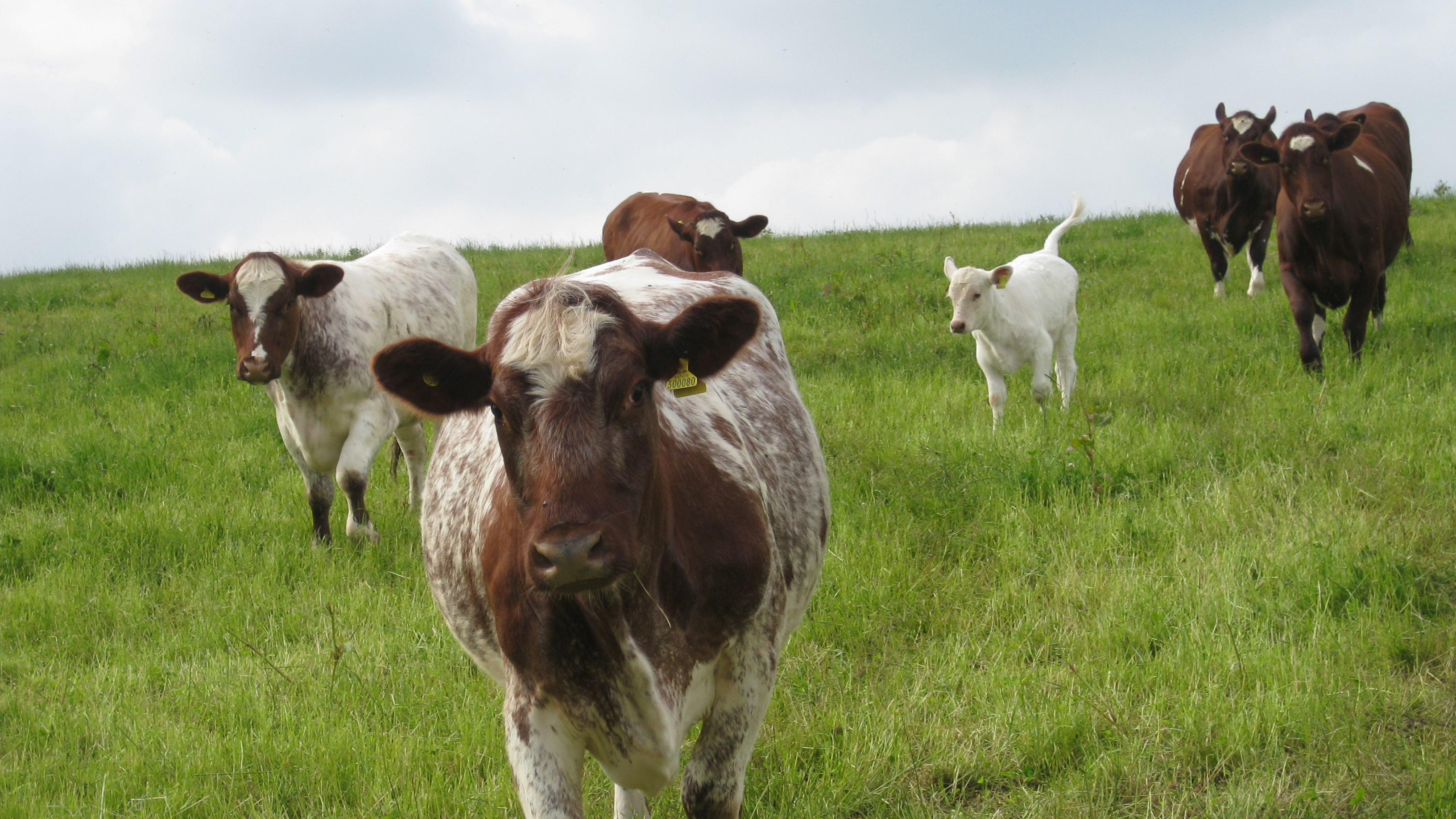- To assess the ecological and agronomic dimensions of Pasture for Life (PfL) approaches in terms of their current and potential inputs, outputs and impact.
- To assess the social and economic dimensions of PfL approaches and their role in the sustainability of the grazing management systems.
- To assess the extent to which the PfL innovations rely on being part of a systemic approach to livestock management and whether individual practices could be applied more widely to improve performance within the ruminant livestock sector.
Aims
Background
Grassland systems dominating the agricultural landscape in GB are largely economically unproductive, ecologically degraded, dominated by a single grass species, organic carbon poor and heavily reliant on inputs to maintain productivity. System impacts are often felt beyond field boundaries, with slurry and phosphorus and nitrogen pollution from intensive practices leaking into water bodies and impacting on nutrient status and species diversity.
We worked closely with farmers practising a pasture fed livestock approach to grazing management
Changing to sustainable systems through innovation can rely on cues from the natural environment. Naturally productive systems which support large numbers of grazing livestock have provided inspiration for Pasture for Life (PfL) certified producers to adopt pasture management practices which mimic those systems. Methods include approaches such as 'herbal leys and diverse swards' and 'mob grazing' which can potentially extend the grazing season whilst providing environmental, economic and livestock benefits in terms of health and productivity.
SEEGSLIP research aimed to evaluate the ecological, agronomic and social impacts of the pasture fed livestock approach to grazing management and its potential as the basis of a sustainable GB-wide system. To achieve this, an experienced interdisciplinary research team carried out a formal assessment of the agronomic, socio-ecological and sustainability and resilience aspects of Pasture Fed Livestock Association (PFLA) members' farm systems and the social systems in which they are embedded (including industry bodies and citizen-consumers) through a combined set of social and natural science research methodologies.
The SEEGSLIP team investigated the broad range of public goods delivered by PFLA farms
The team worked closely with producers and their supporting organisations (including the Pasture Fed Livestock Association, PFLA) to assess sustainability criteria covering a broad spectrum of 60 PLFA enterprises and to assess specific management practices, like 'mob grazing' on a smaller number of (15-20) Pasture for Life certified enterprises.
The work sought to identify the motivations, knowledges and ways of learning of the agricultural innovators employing these approaches. It also investigated the role of governance structures surrounding farms as well as considering their agronomic and ecological impacts. The evaluation included an assessment of PFLA enterprises within the context of current grassland/grazing management practices. The SEEGSLIP team investigated the broad range of public goods delivered by PFLA farms, from the animal products themselves to the impacts of the farming practices on aesthetic values and carbon sequestration.
